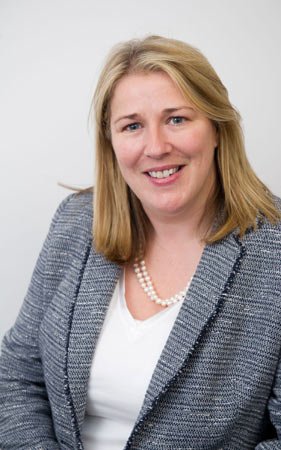WHY ADVICE QUALITY MONITORING METHODS ARE NO LONGER SUFFICIENT
Published by Gbaf News
Posted on February 12, 2015
6 min readLast updated: January 22, 2026

Published by Gbaf News
Posted on February 12, 2015
6 min readLast updated: January 22, 2026

Thorough monitoring of the quality and suitability of advice should be at the forefront of firms’ objectives. However, current available methods of monitoring have fundamental limitations which can result in monitoring being insufficient and ineffective.
One of the key issues with current monitoring is that it is virtually impossible to manually review every single piece of advice or business transacted due to the amount of resource that would be required. Effectively, firms would need to almost double their workforces to provide this level of review and oversight.
Being aware of these limitations and putting in place measures to mitigate their impact is the first step for firms to ensuring their monitoring of the advice process and staff is robust enough to identify key risks to the business. Joanne Smith, CEO of RecordSure examines the limitations in monitoring methods and considers where firms can strengthen their operations.
What are firms’ suitability obligations?

Ensuring that consumers are consistently receiving fair and suitable outcomes is a key concern of the regulator. The FCA handbook sets out industry obligations, stating that “a firm must take reasonable steps to ensure that a personal recommendation is suitable for a client”[1] and advice suitability sits at the heart of the FCA’s Treating Customers’ Fairly principles. Despite these rules, instances of unsuitability still occur.
The FCA recently publicised the view that, “routine business quality monitoring is unlikely to be sufficient on its own to effectively monitor for the risk of unsuitable behaviours”[2]. This suggests that the regulator expects firms to be going above and beyond these industry-standard practices to ensure suitability and the best outcomes for their clients.
Current monitoring methods
Although the ways in which firms monitor advice quality meet current regulatory requirements it is clear that the current methods are not sufficient enough to:
This is because with current methods it would require a prohibitively costly level of resource to review all cases for suitability and because the majority of methods are backward looking rather than assessing the file at the point of sale.
The following are identified issues with current advice quality monitoring methods:
File checking

Joanne Smith
Pre and post sale file checking is widely used within the industry to check a small quantity of files for suitability. File checking relies on the quality and completeness of information provided by the adviser in the client file. However, it has been proven that there is often disparity between what is actually said and what is documented in the client file[3] and recordkeeping is frequently inconsistent.
Although some firms will also supplement file checking with customer contact, which provides further validation, this relies on the memory of the customer and is not an authentic record.
Additionally, most firms only have the capacity to review roughly 5% of business pre and/or post sale. Although this is supposed to be a representative sample, this still leaves an enormous 95% of business that has not been reviewed for suitability.
Observation
Firms often conduct observations of client meetings to assess adviser competency. However, this method is often unreliable and can be an unrealistic assessment of business as usual. For example, an adviser may behave in a certain way or be more aware than usual of what they say because of being observed. This is therefore not a true reflection of how they would normally act and operate.
Mystery shopping
Mystery shopping can only assess a small proportion of cases and is expensive and time consuming to conduct.
However, where the conversations that take place between the adviser/sales staff and the mystery shopper are audio recorded, this provides the assessing body (regulator, firm, third party) with an authentic record of what was discussed. This is the best method of evidencing what was said, what data was collected and what was ultimately recommended.
What can firms do?
The reason these methods continue to be used, despite their limitations, is that there has been no better alternative on the market.
The FCA’s expectations are that firms should go above and beyond the bare minimum regulatory obligations and focus on what should be done in the best interests of consumers, rather than what firms can get away with. Therefore, firms should reflect on whether their current methods of advice quality monitoring provide the maximum level of protection for consumers.
The regulator believes that to fully assess suitability, firms should consider “what was actually said during a conversation”[4] as this could uncover evidence that an adviser had not fully explained the risks and features of a product sufficiently, or not taken into account an aspect of the client’s circumstances that would affect suitability.
In the first instance, firms should consider recording the conversations that take place between their customer facing staff and customers, be they in contact centres, in branches or in the field. Retaining a record of the conversation provides an accurate history and account of the transaction or advice, encourages advisers to better document conversations, makes file reviews more comprehensive and require less customer contact and assists both the adviser and the client in the event of a complaint.
Firms should also consider whether they have the infrastructure in place to review a greater quantity of business and ensure that they adopt a risk-based approach that seeks to review and monitor those transactions that pose a greater risk to ensuring suitability and the business.
Joanne Smith, CEO of The Consulting Consortium and RecordSure
With over 20 years’ experience in the financial services industry, Joanne Smith has made a name for herself as an innovator with a passion for compliance. Joanne has built her award-winning company TCC into the largest independent compliance consultancy in the UK. Joanne recognised a need to mitigate mis-selling in financial services and founded a technology company called RecordSure to bridge that gap. The technology provides financial services companies with the ability to analyse what financial staff and advisers are telling customers about products and services to ensure that they are being given all the correct information. It also provides a greater level of security and transparency for customers.
[1]http://fshandbook.info/FS/html/FCA/COBS/9/2
[2]http://www.fca.org.uk/news/tr14-4-risks-to-customers-from-financial-incentives
[3]https://www.fca.org.uk/static/documents/final-notices/rbs-natwest.pdf
[4]http://www.fca.org.uk/static/documents/thematic-reviews/tr14-04.pdf
Explore more articles in the Business category











